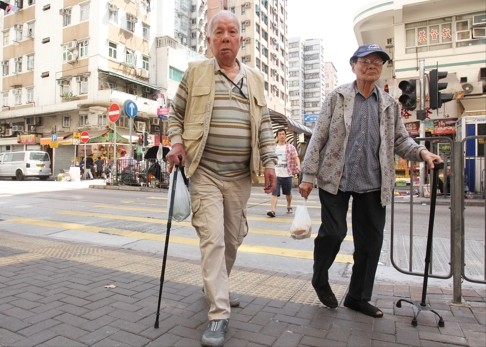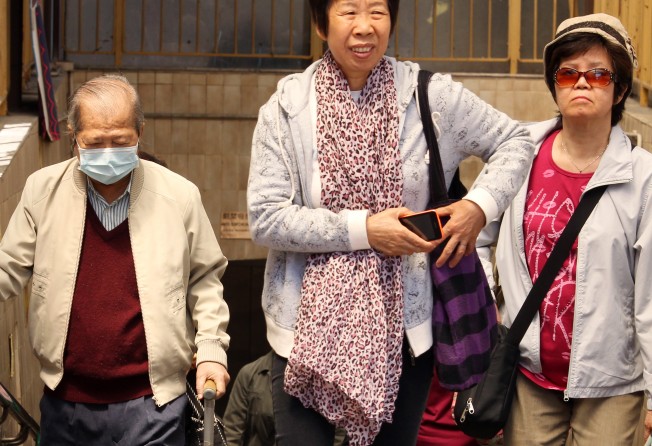
5. How much would taxpayers need to pay under the different taxes? ■
From who stands to benefit to how it’s funded, here’s your guide to answering basic questions

A consultation paper on a long-awaited retirement protection scheme was unveiled by the government yesterday. The paper featured two scenarios known as a universal “Regardless of rich or poor” option and a non-universal “Those with financial needs” option, under which eligible elderly would receive $3,230 per month. The Post has prepared questions and answers to help you get a better grasp of what’s in the works.
1. Why do we need a retirement protection scheme?
Hong Kong has a rapidly ageing population and a shrinking workforce. The consultation paper stated that by 2040 about one in every three Hongkongers will be an elderly person. The number of Hongkongers aged 65 or above will more than double from 1.07 million last year to 2.58 million in 2064.
An ageing population will lead to a much higher demand for health care and social welfare. Given the existing contribution rates and extent of coverage, the Mandatory Provident Fund scheme alone cannot fully address retirement protection for the elderly. The government acknowledged that some elderly people were not adequately cared for under the existing system.
2. How many people would benefit?
For the universal “Regardless of rich or poor” option
All elderly people aged 65 or above, or 1.12 million people
For the non-universal “Those with financial needs” option
This introduces a new layer of support beneath the Old Age Living Allowance, making around 250,000 elderly persons eligible
- Elderly single people with assets not exceeding HK$80,000 and a monthly income of no more than HK$7,340
-Married elderly couples with assets not exceeding HK$125,000 and a monthly income of no more than HK$11,830
3. How much would it cost?
For the universal “Regardless of rich or poor” option
An uptick from $22.6 billion in 2015 to $56.3 billion in 2064, leading to an overall increase in expenditure of $2,395 billion for 50 years
For the non-universal “Those with financial needs” option
An uptick from $2.5 billion in 2015 to $6 billion in 2064, leading to an overall increase in expenditure of $255.5 billion for 50 years
4. How would government fund the expenditure?
For both options, the government proposed four ways to foot the bills, including setting up a tax for employers and employees, increasing salaries tax, increasing profits tax, or introducing a goods and services tax.

For the universal “Regardless of rich or poor” option
- Taxing employers and employees 1.6 to 3.9 per cent
- Increasing salaries tax by 8.3 per cent
- Increasing profits tax by 4.2 per cent
- Introducing a goods and services tax of 4.5 per cent
For the non-universal “Those with financial needs” option
- Taxing employers and employees 0.2 to 0.4 per cent
- Increasing salaries tax by 0.9 per cent
- Increasing profit tax by 0.4 per cent
- Introduce a goods and services tax of 0.5 per cent
6. What are the concerns surrounding these proposals?
University of Hong Kong academic Nelson Chow Wing-sun criticised the government’s consultation paper, saying it would further divide the city. He said it was clear the government favoured the non-universal scheme and had presented his proposed universal scheme in such a way that it appeared to endanger the public purse.
Chua Hoi-wai, chief executive of the Council of Social Service, said the non-universal scheme set the threshold too high for elderly people, saying they could only have savings of no more than HK$80,000 to be eligible. Chua said: “Given Hong Kong’s high cost of living, there is no way the elderly would feel secure to have just HK$80,000 in savings. A lot of them would have to give up their extra savings in order to be eligible, or live feeling insecure.”
The business sector said both proposals would impose extra burdens on employers, especially on small-to-medium-sized enterprises. Stanley Lau Chin-ho, honorary president of the Federation of Hong Kong Industries, said he opposed both options presented in the consultation paper because of the tax implications.